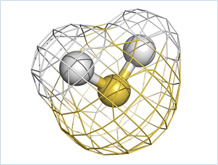speculawyer
Member

http://www.exeter.ac.uk/news/research/title_393168_en.htmlRotten egg gas holds key to healthcare therapies
It may smell of flatulence and have a reputation for being highly toxic, but when used in the right tiny dosage, hydrogen sulfide is now being being found to offer potential health benefits in a range of issues, from diabetes to stroke, heart attacks and dementia.
A new compound (AP39), designed and made at the University of Exeter, could hold the key to future therapies, by targeting delivery of very small amounts of the substance to the right (or key) places inside cells.
Scientists in Exeter have already found that the compound protects mitochondria the powerhouse of cells, which drive energy production in blood vessel cells. Preventing or reversing mitochondrial damage is a key strategy for treatments of a variety of conditions such as stroke, heart failure, diabetes and arthritis, dementia and ageing. Mitochondria determine whether cells live or die and they regulate inflammation. In the clinic, dysfunctional mitochondria are strongly linked to disease severity.
Professor Matt Whiteman, of the University of Exeter Medical School, said: When cells become stressed by disease, they draw in enzymes to generate minute quantities of hydrogen sulfide. This keeps the mitochondria ticking over and allows cells to live. If this doesnt happen, the cells die and lose the ability to regulate survival and control inflammation. We have exploited this natural process by making a compound, called AP39, which slowly delivers very small amounts of this gas specifically to the mitochondria. Our results indicate that if stressed cells are treated with AP39, mitochondria are protected and cells stay alive.
Release a SBD if old.





